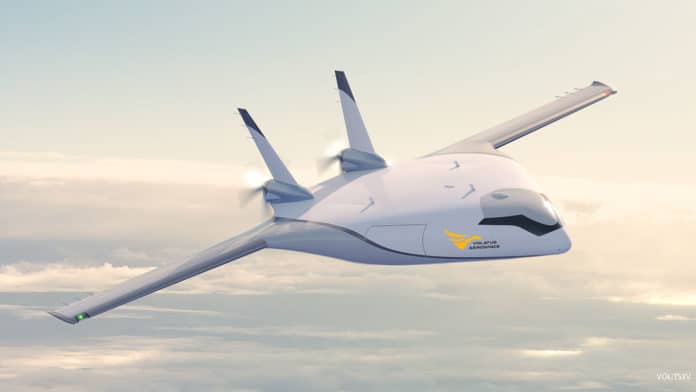Volatus Aerospace Corp. has secured the first production delivery slot for the Natilus N3.8T large autonomous drone under development by San Diego, California-based Natilus. Natilus has developed the next-generation autonomous cargo drone freighters designed to dramatically reduce both the cost and environmental impact of air freight.
The Natilus N3.8T is the first in a family of next-generation freight aircraft. It will have a twin-engine turboprop, a blended wing body, a maximum takeoff weight of 8,618 kg (19,000 lbs), and a maximum range of 1,667 km (1,035 miles). It is expected to carry a load of LD3 containers to a maximum weight of 3,855 kg (8,500 lbs).
The aircraft uses a unique blended wing body to pack in 60% more cargo than traditional aircraft of the same size and weight while reducing costs and carbon dioxide per pound by 50%. In addition to the blended wing body design, the Natilus N3.8T integrates the remote-pilot operation and standard container standardization.
The aircraft has completed the second wind tunnel test and is expected to begin deliveries in 2025.
By introducing the Natilus cargo drone into its fleet of aircraft, Volatus Aerospace is creating a bridge between its smaller UAV services and Avidrone heavy-lift activities and traditional charter planes whose facilities will enable the N3.8 T’s operation.
“Reducing the cost of airfreight by up to 50% will bring fresher produce into our stores, enable cross-border e-commerce to flourish, and enable low infrastructure regions to develop,” stated Aleksey Matyushev, the CEO of Natilus. “Natilus is uniquely capable of developing the next generation aircraft due to our understanding and presence in the drone industry and capabilities in commercial aviation. We are excited that Volatus has elected to be one of our first operators.”
